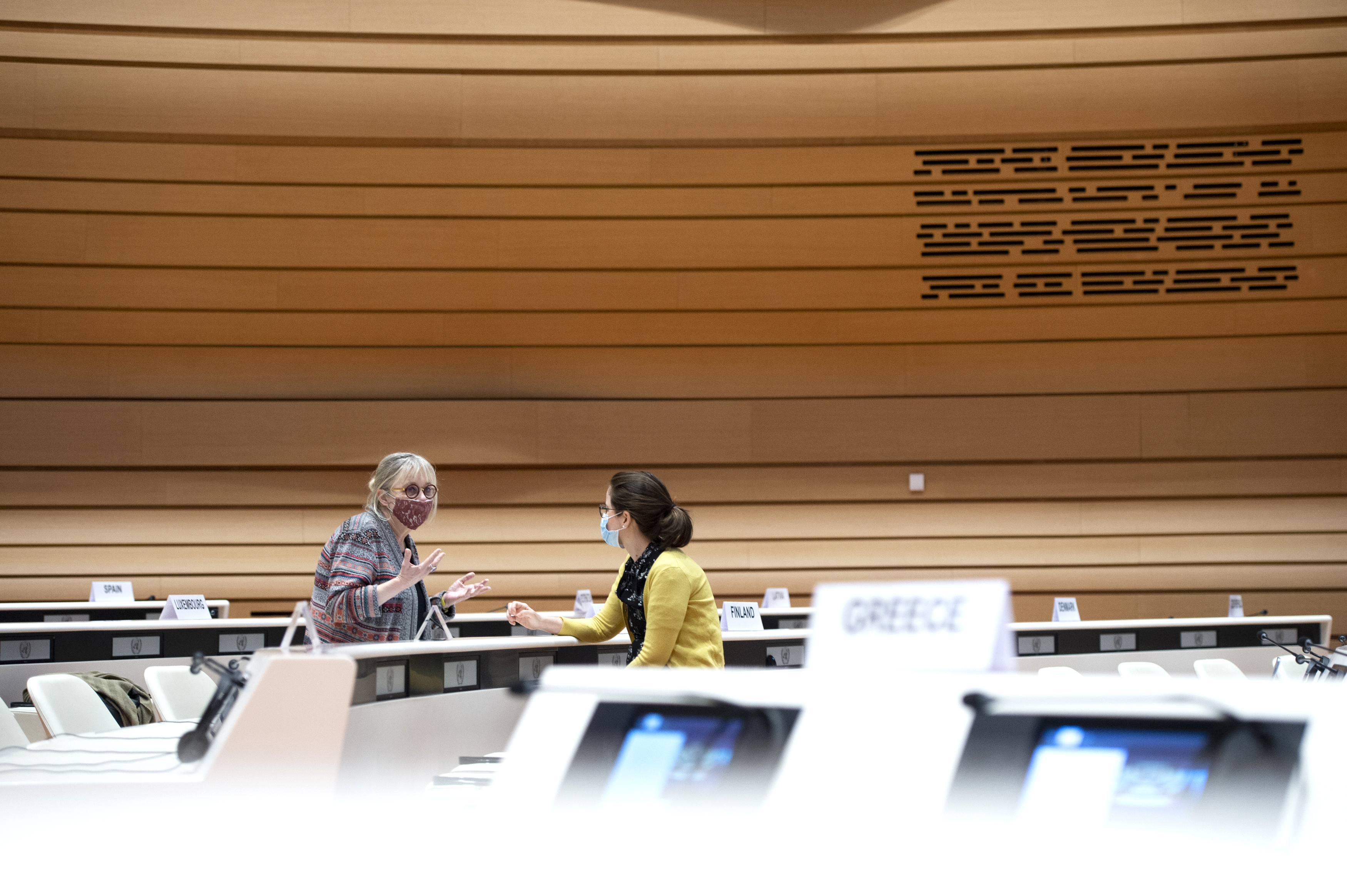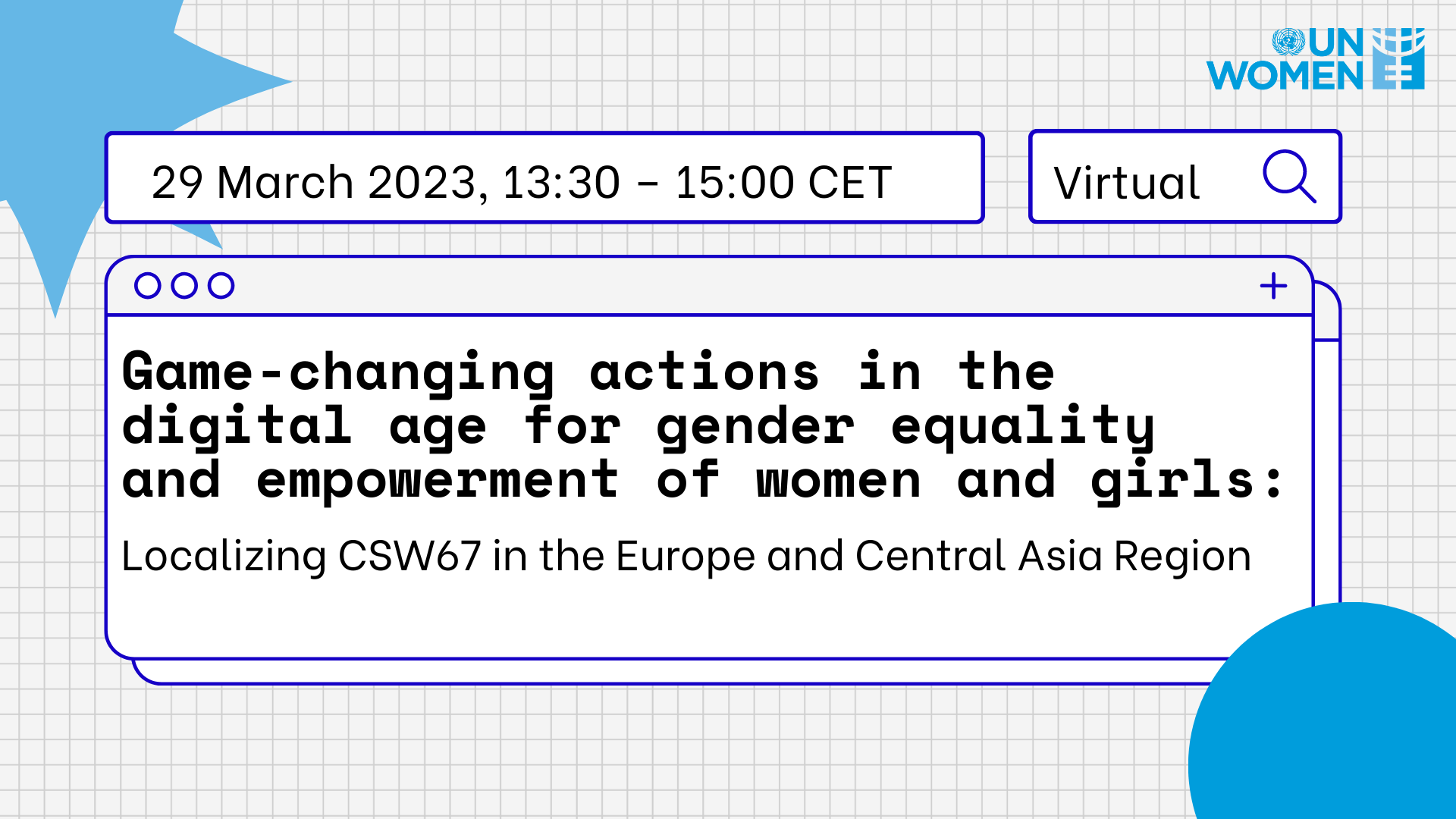Background
The 67th session of the Commission on the Status of Women (CSW) focused on “Innovation and technological change, and education in the digital age for achieving gender equality and the empowerment of all women and girls”. The CSW67 dialogue provided an opportunity to address misconceptions of gendered dimensions of technology and innovation that hinder GEWE progress, to move beyond a binary vision of the gender digital divide and shape inclusive innovation ecosystems and address online and technology-facilitated violence against women. The sub-regional CSW67 sub-regional preparatory meetings for Central Asia (hosted by the Government of Kyrgyzstan), the Western Balkans (hosted by the Government of Albania) and Ukraine and EU/neighbouring countries hosting persons fleeing Ukraine following Russian’s invasion), provided an opportunity to formulate national and sub-regional positions to influence and inform CSW67.
In 2020-2021 partners in ECA region joined the Action Coalition on Technology and Innovation for Gender Equality (AC TIGE) and made commitments to advance gender equality in STEM. The commitments were expected to translate into tangible actions advancing women and girls participation in technology and innovation, overall aspiring to forge new commitments, including collective commitments, building on the momentum of the GEF. The year 2023 is a midpoint for Generation Equality to assess and report on progress and consider how the commitments made could be further strengthened by the solutions suggested by inter-governmental platforms like CSW.
The rapidly growing access and use of Information and Communication Technologies (ICT), accelerated by the COVID-19 pandemic, has had multiple impacts on gender equality and women’s rights, including the further exacerbation of existing forms of violence against women (VAW), especially sexual harassment, and the emergence of new forms of VAW, such as non-consensual image sharing.
UN Women



